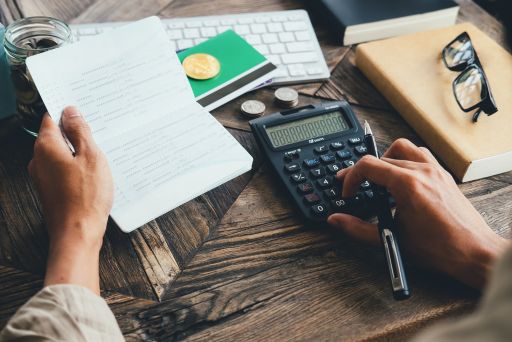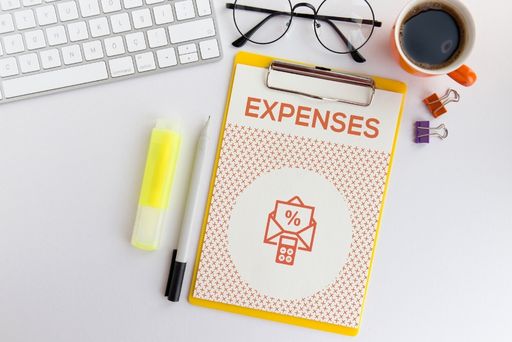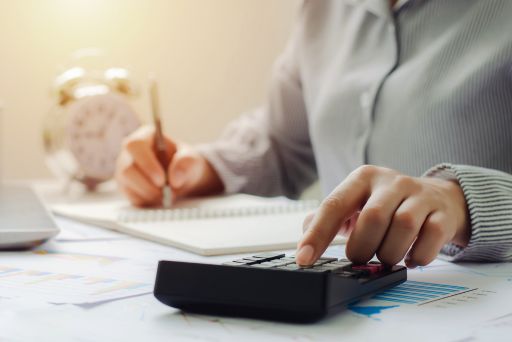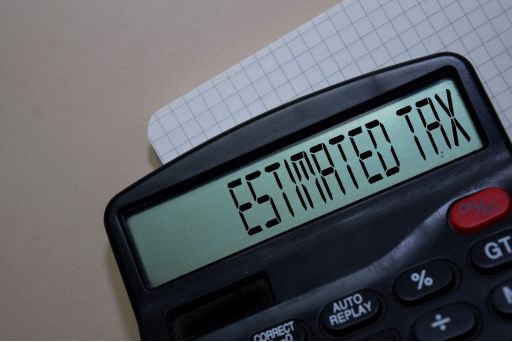Starting and running a small business can be a rewarding endeavor, but it also comes with financial responsibilities, including paying taxes. As a small business owner, you might be wondering how much income your business can generate before you’re required to pay taxes. Understanding the tax implications of your business income is essential for financial planning and compliance with tax laws. In this comprehensive guide, we’ll explore the factors that determine how much a small business makes before paying taxes, including income tax, tax brackets, deductions, and more.
The Basics of Small Business Taxation

Before delving into the specific income thresholds for small businesses, let’s clarify some fundamental concepts related to small business taxation:
1. Taxable Income vs. Gross Income taxes
Taxable income and gross income are two critical concepts in the realm of income tax, and understanding the distinction between them is fundamental for business owners. Let’s delve into these terms and their significance:
Gross Income:
This is the total revenue generated by your business before any deductions or exemptions are considered. In other words, it’s the sum of all the money your business earns from various sources, such as sales, services, investments, and any other income streams. Total earnings provides a broad overview of your business’s financial inflow but does not reflect the amount of income that is subject to taxation.
Taxable Income:
In contrast, it represents the portion of your total earnings that is subject to taxation after accounting for allowable deductions and exemptions. Deductions are expenses or costs that the tax code permits you to subtract from your total earnings. These can include operating expenses, employee salaries, rent, utilities, and other legitimate business costs. Exemptions, on the other hand, are specific amounts that can be subtracted from your total earnings for each eligible person in your household, reducing your overall taxable income.
For example, if your small business earns $100,000 in total earnings but has $20,000 in deductible business expenses, your taxable income would be $80,000 ($100,000 – $20,000). Income taxes are calculated based on this taxable income, taking into account your applicable personal tax rate and any tax credits for which you qualify.
2. Tax Rates and Filing Status
Tax brackets vary based on your filing status and the amount of taxable income. Business owners often pay personal income taxes on business income, and the tax brackets are determined by the federal and state tax laws.
In the realm of income taxation, your tax liability is significantly impacted by your filing category and the applicable tax brackets. Your chosen filing category, whether it’s single, married filing jointly, married filing separately, or head of household, determines the specific income ranges that correspond to various tax rates. These tax percentages can vary across federal and state tax regulations and may undergo alterations as a result of legislative modifications over time.
It is important for entrepreneurs to acknowledge that they frequently report their business earnings on their personal tax returns. Consequently, the tax brackets they fall into are contingent on their overall taxable income, encompassing both individual and business earnings. By grasping the nuances of their filing category and the associated tax percentages, business proprietors can adeptly strategize their financial affairs, harnessing the benefits of deductions and tax credits to optimize their tax obligations in alignment with tax laws and guidelines. Remaining well-informed about any adjustments in tax rates or brackets is pivotal for precision in tax planning and compliance with tax legislation.
3. Business Structure
The structure of your business plays a pivotal role in determining how your business income is treated for tax purposes. The type of business structure you choose, whether it’s a sole proprietorship, LLC (Limited Liability Company), S corporation, or C corporation, can significantly impact how your business earnings are taxed. Here’s a breakdown of how different business structures can affect your tax obligations:
Sole Proprietorship: In this business structure, the business is not considered a separate legal entity from the owner. Income and losses from the business are typically reported on the owner’s personal tax return (Form 1040). As a sole proprietor, you pay taxes on your business income at your individual tax rate, and you are responsible for self-employment tax, which covers Social Security and Medicare contributions.
LLC (Limited Liability Company): An LLC provides a degree of liability protection for its owners (members) while offering flexibility in taxation. By default, a single-member LLC is taxed similarly to a sole proprietorship, with income reported on the owner’s individual tax return. Multi-member LLCs are generally treated as partnerships for tax purposes, with income and losses allocated to the members.
S Corporation: An S corporation is a pass-through entity that does not pay federal income tax at the corporate level. Instead, income and losses are passed through to the shareholders, who report them on their individual tax returns. Shareholders of an S corporation pay taxes on their share of the business’s income at their respective tax rates.
C Corporation: Shareholders of a C corporation are taxed separately on any dividends they receive, resulting in potential double taxation. However, C corporations may have certain tax advantages and flexibility when it comes to reinvesting profits into the business.
Additionally, the Tax Cuts and Jobs Act introduced the concept of “qualified business income” (QBI) deductions, which can impact the tax liability of certain business owners. This deduction allows eligible taxpayers to deduct a portion of their qualified business income, potentially reducing their taxable income.
4. Tax Credits and Deductions
Tax credits and deductions can reduce your tax obligation. Small business owners may qualify for various tax credits and deductions, such as the Child Tax Credit, business expenses, and self-employment tax deductions.
5. Estimated Tax Payments
Depending on your business’s income, you may be required to make estimated tax payments throughout the year to cover your tax liability. This applies to self-employed individuals and businesses with significant income.
Small Business Taxable Income Thresholds

The threshold for how much a small business make before paying their tax obligations depends on several factors, including filing classification, deductions, and the specific tax laws applicable to your business. Here are some key considerations:
1. Filing Classification
Your filing classification as a small business owner can influence the amount of income you can earn before meeting tax obligations. Filing statuses include single, married filing jointly, married filing separately, and head of household. Tax rates and income thresholds vary for each status.
2. Tax Rates
Tax rates are determined by your taxable income and filing classification. As of my last knowledge update in September 2021, the federal income tax system in the United States consists of several tax brackets, with progressively higher rates for higher income levels. The tax rates can change over time due to legislative updates, so it’s crucial to consult the latest tax tables from the IRS or a tax professional for current rates.
3. Deductions and Tax Credits
Business expenses and allowable deductions can significantly impact your taxable income. Small business owners can deduct various expenses, such as office rent, utilities, employee salaries, and more. Additionally, tax credits, like the Child Tax Credit or business-related credits, can further reduce your tax obligation.
4. Business Structure
The structure of your small business plays a crucial role in determining how your business income is taxed. For example, sole proprietors report business income on their personal tax returns, while corporations may face corporate income tax rates.
5. Tax Laws and Regulations
Tax laws and regulations are subject to change, and new laws may be enacted. It’s essential to stay updated on any legislative changes that may affect your business’s tax obligation.
Calculating Your Tax Liability
To determine how much your business income or your small business can make before you pay your tax obligations, you’ll need to calculate your taxable income. Here’s a simplified step-by-step process:
Calculate Gross Income: Start by adding up all your business revenue, including sales, services, and any other income sources.
Deduct Business Expenses: Subtract allowable business expenses from your total income. These expenses can include rent, utilities, employee wages, supplies, and more.
Apply Deductions: Consider any deductions for which you qualify. These can include deductions for self-employment tax, retirement contributions, and health insurance premiums.
Check Tax Credits: Determine if you’re eligible for any tax credits, such as the Child Tax Credit or business-related credits.
Consult Tax Tables: Refer to the federal and state tax tables for your filing status to calculate your tax obligation based on your taxable income.
Consider State Taxes: Keep in mind that state income tax laws vary, and your business may be subject to state income taxes in addition to federal taxes. Research your state’s tax laws and rates.
Strategies to Minimize Your Tax Obligations
As a small business owner, there are strategies you can employ to minimize your tax obligations legally and effectively:
1. Take Advantage of Deductions: Maximize allowable business deductions to reduce your taxable income.
2. Explore Tax Credits: Investigate available tax credits that can directly offset your tax bill.
3. Retirement Plans: Consider setting up retirement plans for yourself and your employees, which can offer tax advantages.
4. Hire a Tax Professional: Consult a tax professional or accountant who specializes in small business taxation. They can provide tailored advice and help you navigate your business income and the complex tax landscape.
5. Estimated Tax Payments: If required, make estimated tax payments throughout the year to avoid penalties and manage your tax obligations.
Determining how much a small business can make before paying taxes is a nuanced process that depends on various factors, including income, deductions, tax brackets, and business structure. Small business owners should proactively manage their finances, stay informed about tax laws, and explore tax-saving opportunities to optimize their tax situation.
Consulting with a tax professional or accountant can provide invaluable guidance and ensure compliance with tax regulations. By understanding the intricacies of small business taxation, you can make informed financial decisions and keep your tax obligation in check while focusing on the growth and success of your business.

If you’re ready to take the next step in managing your small business taxes effectively, consider reaching out to Vyde for personalized tax consulting. Our team of experts is dedicated to helping small business owners like you navigate the complexities of tax laws to maximize your savings and maintain compliance. Don’t let tax concerns distract you from your business goals. Contact Vyde today and let us help you turn tax time into an opportunity for financial optimization and peace of mind.
Frequently Asked Questions:
What is the difference between taxable income and gross income for small businesses?
Taxable income is the portion of your total earnings that is subject to taxation after accounting for allowable deductions and exemptions. Gross income, on the other hand, is the total revenue generated by your business before any deductions or exemptions are considered. It represents the sum of all the money your business earns from various sources, such as sales, services, investments, and other income streams.
How do tax brackets and filing status affect small business owners’ tax liability?
Tax brackets and filing status play a significant role in determining your tax liability. Your chosen filing category, such as single, married filing jointly, married filing separately, or head of household, determines the specific income ranges that correspond to various tax rates. Your tax rates and income thresholds can vary across federal and state tax regulations and may change over time due to legislative modifications.
What impact does the business structure have on small business taxation?
The structure of your business can significantly impact how your business earnings are taxed. Sole proprietorships report business income on the owner’s personal tax return, while corporations may face corporate income tax rates. Different business structures, such as LLCs and S corporations, have their own tax rules and implications for business owners.
What are some common tax credits and deductions that can reduce a small business owner’s tax obligation?
Small business owners may qualify for various tax credits and deductions, such as the Child Tax Credit, business expenses, and self-employment tax deductions. These deductions and credits can help reduce your overall tax liability.






















